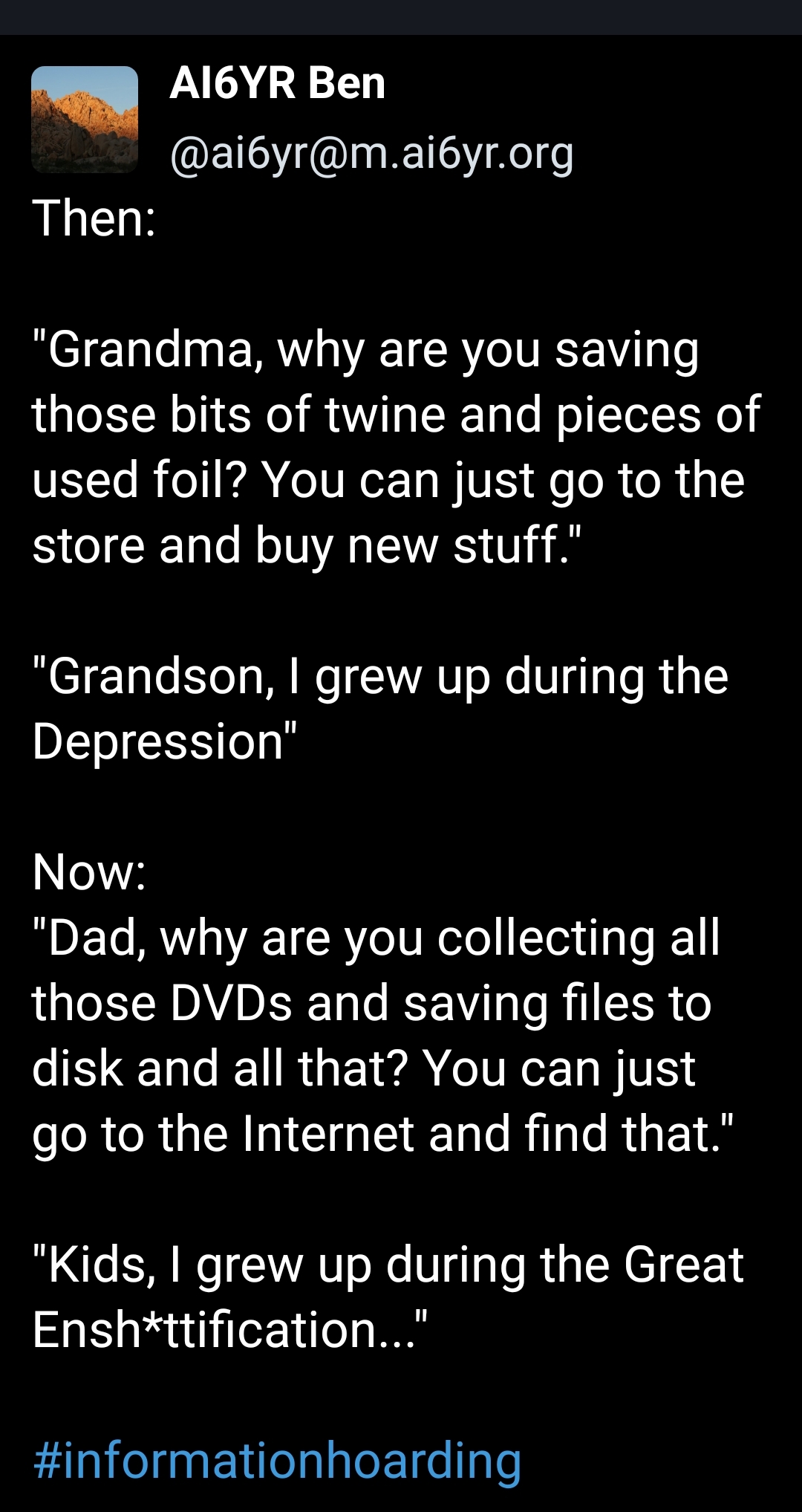this post was submitted on 14 Aug 2024
806 points (98.2% liked)
People Twitter
5466 readers
1294 users here now
People tweeting stuff. We allow tweets from anyone.
RULES:
- Mark NSFW content.
- No doxxing people.
- Must be a pic of the tweet or similar. No direct links to the tweet.
- No bullying or international politcs
- Be excellent to each other.
- Provide an archived link to the tweet (or similar) being shown if it's a major figure or a politician.
founded 2 years ago
MODERATORS
you are viewing a single comment's thread
view the rest of the comments
view the rest of the comments

This story implies that there will be a time when the cloud becomes reliable for long-term storage of media into the future.
It never will be. Enshittification and capitalism makes it much shorter, but even given a well-run publicly accountable system of cloud storage, there will still come crises that result in the loss of our data artifacts over time. Political upheavals. Viruses and external attacks of all kinds. Bad policies voted for by the public.
Over long enough timeframes, everything currently in the cloud (everything worth saving, that is) will eventually have to be rescued by some grandma somewhere with tape backups of your favorite movies in her attic.
we could get rid of capitalism, stop burning all the libraries on purpose.
Only a sith deals in absolutes.
Realistically, it could be done, the problem is all current cloud providers only invest in backups and maintenance as far as it makes them or helps make them a profit.
A well-run well-funded public option would be far better than the current situation. Yea, crisis's can and will happen, but to me to qualify as "well-run" it would have to have established and practiced procedures and contingency plans for such things. Perhaps a "globally funded and run" public option so that no singular political upheaval or natural disaster in certain parts of the planet would be able to significantly affect things.
Hell, with enough funding we could even have a daily batched "moon backup" so even in the case of a total global disaster, there's still something left.
Conversely, it would be far more likely for Grandma to lose data when compared to a "well funded well run" public option. Grandma may or may not have invested in the proper 321 backup strategy, or even tested them, or stored them properly Grandma may very well have just tossed em in a box in a hot and humid attic. Any ability to retrieve what you wanted from Grandma's box of tape backups would be entirely on luck and fate.
That being said, at the end of the day, we have to get one of those promising "permanent" storage technologies to hit mass production (Like the ceramic or glass storage medium or the DNA based one) if we want any hope of actually preserving our digital data in a way that will stand the test of time and lack of maintenance.
File storage blockchains address this problem. You basically pay an ever-changing group of people to save your (possibly encrypted) file. When there are too few copies of the file available for download, the reward for seeding it increases.
However, this assumes at least occasional global funding to survive competition. And they would never make a moon backup because the market would place no value on its discovery.